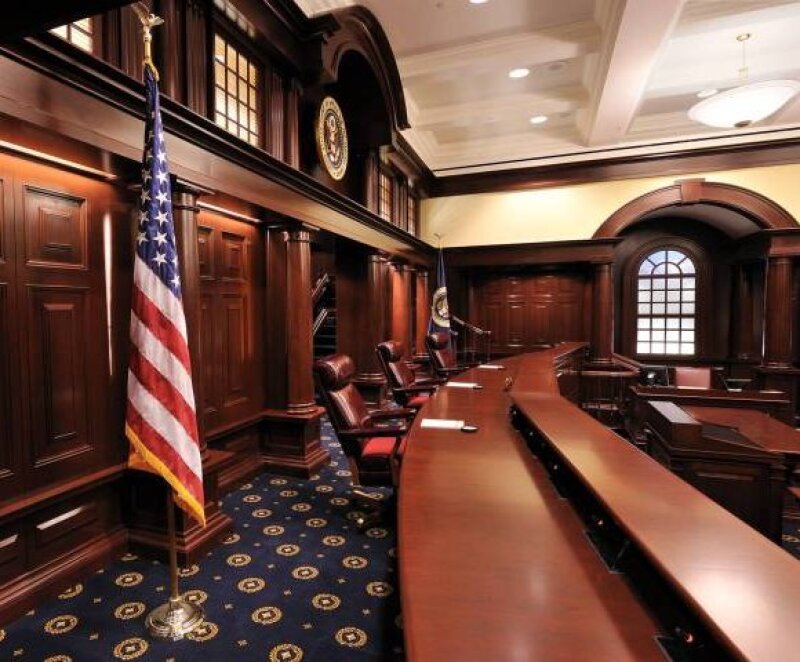
In the style of movie reviews, he gave an overview of case law applying the ruling.
The first case up for critical analysis was the Federal Circuit’s Ultramercial v Hulu ruling in November of last year, which found ineligible the claims of a patent directed to a method for allowing users to see copyrighted content free if they watch an advertisement. This was after the Federal Circuit had twice found the patent valid.
Beck gave an inventive review of the case: “The worst finale to a trilogy since ‘Godfather Three’! The first two Ultramercials were waaaaaaaaaaaaaaaaaaaaaaaay better!”
The Federal Circuit found that using an advertisement as exchange or currency was abstract and it was not transformative. Some of the takeaways from the case were that it did not provide an inventive concept, a large number of steps is not enough in itself to be transformative, and that Ultramercial was wrong to argue that “the addition of merely novel or non-routine components to the claimed idea necessarily turns an abstraction into something concrete.”
Beck gave the case a rating of “Three-and-half crying patent attorneys.”
The next case reviewed was the December 2014 DDR Holdings v Hotels.com ruling by the Federal Circuit. Beck suggested two potential reviews for the case of, “A case so good, that (if it were a movie) it would make ‘Gone with the Wind’ look like a pile of llama puke!” and, “It’s like Steven Spielberg went back in time to direct Russell Crowe and Beyoncé in ‘Casablanca!’ It’s that good!”
The patent at issue was found to be an abstract idea directed to making two web pages look the same. But it was ruled to be transformative, with Judge Chen writing “the claimed solution is necessarily rooted in computer technology in order to overcome a problem specifically arising in the realm of computer networks.”
Beck noted a strong dissent in the case from Judge Mayer, which said the steps were not transformative and that the claims perform a business practice found in the real world, such as a Starbucks inside a supermarket. Beck gave the case a review of “Three happy and one suspicious patent attorneys.”
The next case before Beck’s critical eye was the more recent Internet Patents v Active Network ruling out of the Federal Circuit in June. His review for this was: “It’s like Alfred Hitchcock remade the movie ‘Psycho’ with the Federal Circuit as Norman Bates and software patents in the shower!”
The patent, directed to retaining information on navigation and online forms, was found to be abstract and not transformative.
One takeaway from this was that both DDR and Internet claimed improvement, but the difference was that Internet lacked details about how the invention performed its task. “They drew a true distinction here,” said Beck. “They said Internet lacks details about how the invention works, but that DDR does describe the workings of the invention in great detail. That’s the difference for the court between ‘something more’ and an abstract idea.”
Beck gave it a review of “Three crying patent attorneys and 458 unemployed software examiners” – “It’s a complicated rating system,” he explained.
Beck says the upshot for district courts is that they are now trying to work out if their cases look more like Ultramercial or whether their cases look more like DDR. Beck outlined the situation in movie terms: “Ultramercial v DDR – we haven’t seen a showdown like this since Luke Skywalker versus Darth Vader!”
He analyzed the Klaustech v Admob case in the Northern District of California, in which the claims were found not abstract and transformative. “Three and a half smiling patent attorneys,” was Beck’s verdict.
Less positively reviewed was eDekka v 3Balls.com, which was panned by the critics: “Cases like this are sinking software patent faster than Leonardo DiCaprio on the Titanic. But unlike the movie there are no lifeboats here.”
Judge Gilstrap in the Eastern District of Texas found invalid eDekka’s patent directed to a method for storing information provided by a user. The patent had been used in more than 200 patent lawsuits. The court found the claims were directed to an abstract idea of storing and labeling information, which Beck said is analogous to a file clerk’s work.
The rating? “Two and a half crying patent attorneys and one Zen patent attorney who is finally coming to inner peace with the new landscape,” said Beck. “Hopefully we all are.”
The session also featured a presentation from BIO’s Hans Sauer. He said that biotech companies “are not that energized” about Section 101 compared to technology companies. But even here, there is some concern.
“I would say we are starting to see some patents coming under attack,” he said. “I am hearing from traditional pharmaceutical companies saying patents are being attacked that they never thought they would see attacked [as result of Myriad and Mayo].”









